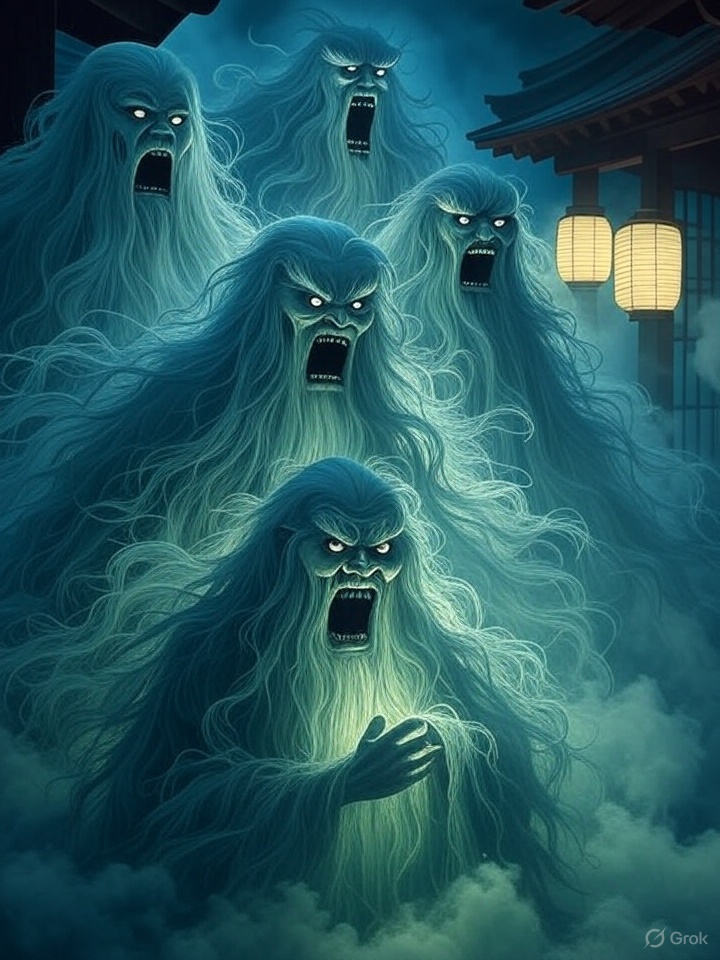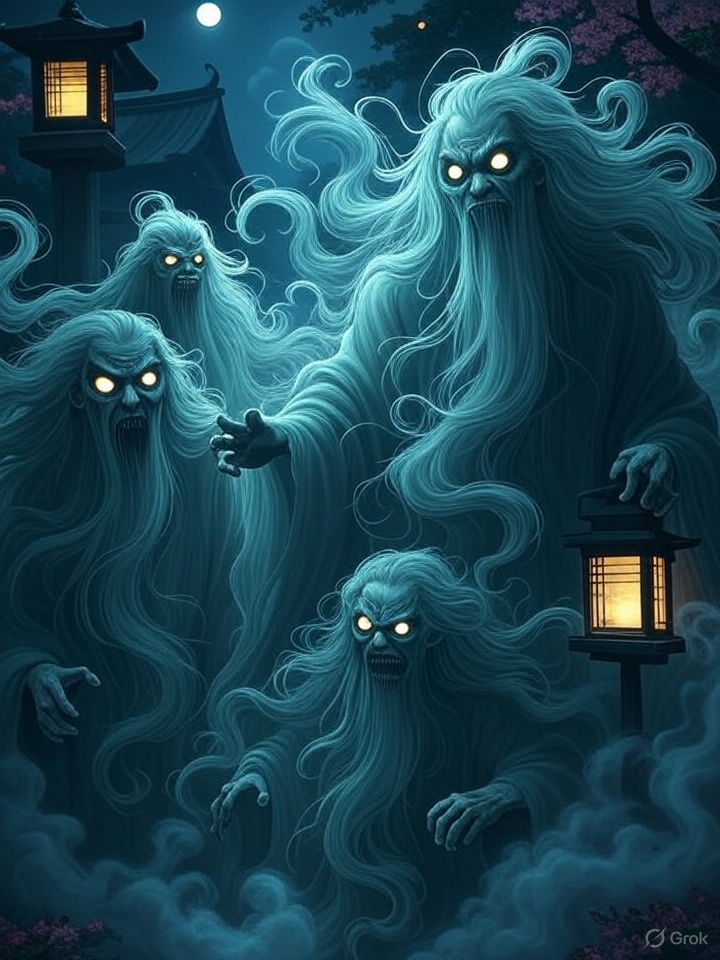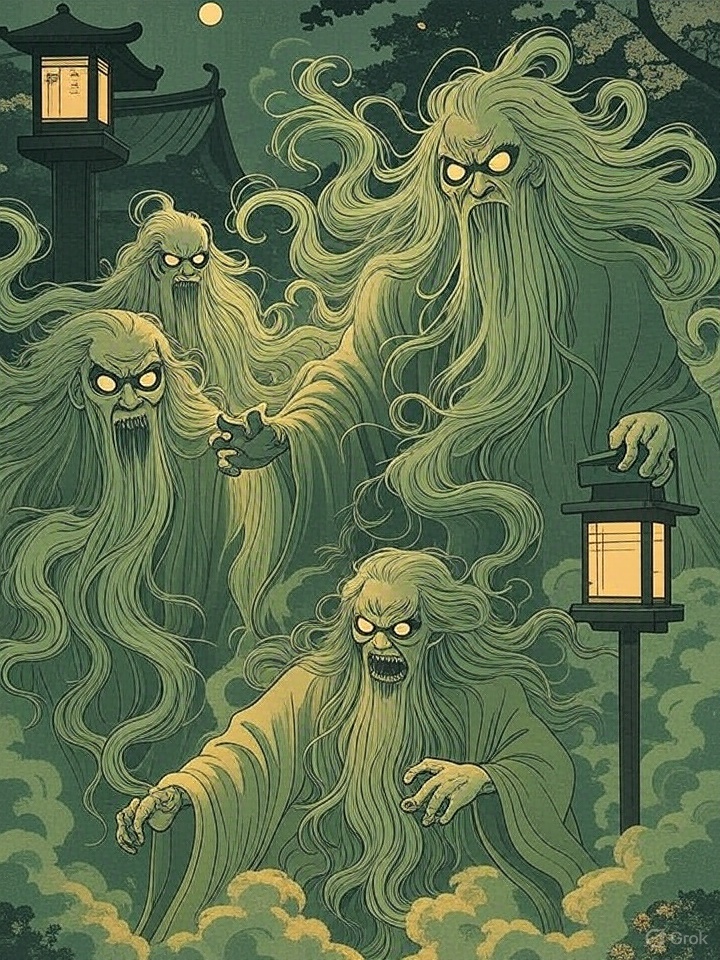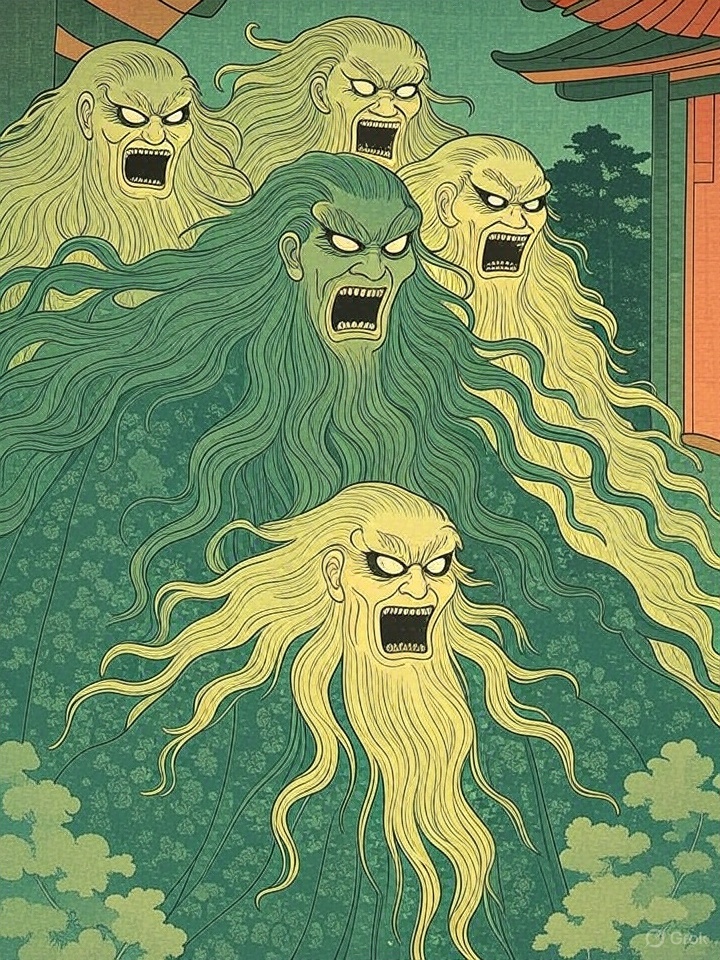Name Meaning
Overview
\n
Goryō (御霊) translates to "honorable spirit" and refers to spirits of individuals, often nobles, who died with unresolved grievances and became vengeful after death.
- Go (御) = honorable, respectful prefix
- Ryō (霊) = spirit, ghost
Origin
- Originated during the Heian period when the deaths of high-status individuals under suspicious or unjust circumstances were feared to bring misfortune.
- Famous figures like Sugawara no Michizane are deified to appease their angry spirits.
- Rituals such as Goryō-e were held to calm these spirits and prevent disasters.
Appearance
- Rarely depicted visually, often represented by storms, plagues, or ominous signs.
- Sometimes shown as dark, shrouded figures or spectral nobles.
- Associated with temples, shrines, and haunted areas where untimely deaths occurred.
Behavior & Myths
- Blamed for epidemics, lightning strikes, political upheaval, and natural disasters.
- Spirits like Michizane’s were pacified with shrines, titles, and reverence.
- Goryō can become protective deities once appeased.
Symbolism
- Symbolizes the need for justice, respect for the dead, and the power of unresolved emotions.
- Reflects the social and political tensions of ancient Japan.
- Reminds people of the importance of ancestral reverence and karmic balance.



